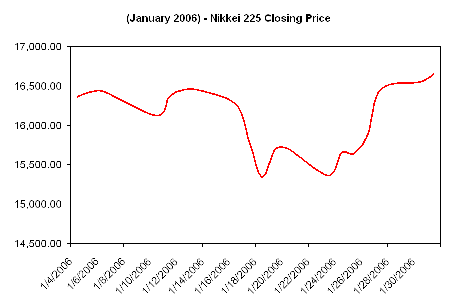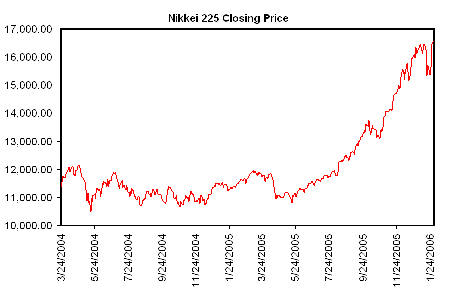No, it’s not the title of the newest Godzilla spinoff, but the stars of the two recent seafood related news stories that have been making waves in Japan.
I’ll start with kujira, which is the Japanese word for whale. Japan has not just continued it’s program of so-called “scientific whaling,” in which they violate the international treaty prohibiting commercial whaling while pretending they haven’t, but is actually increased their catch. This is despite the fact that almost nobody actually likes whale meat.
 According to the report, the inventory was about 1,000 to 2,500 tons around 1995. It hit a low point of 673 tons in March 1998 but began to increase to reach 4,800 tons last August.
According to the report, the inventory was about 1,000 to 2,500 tons around 1995. It hit a low point of 673 tons in March 1998 but began to increase to reach 4,800 tons last August.
[…]
The Fisheries Agency admits the whale meat inventory is rising and has begun studying ways to expand sales in Japan.
“It is true that such a trend exists. We will study ways to expand sales channels as well as to reform sales methods,” an agency official said.
Such moves by the government to stimulate the whale meat market will probably draw more criticism from antiwhaling groups that fear more consumption in Japan.
Since 2000, the research whaling has been expanding in terms of volume and number of species. On the other hand, consumption has not increased as areas of high demand for whale meat are limited in Japan.
“Unless the consumption of whale meat increases dramatically, the stockpile of whale meat will surge,” Sakuma said.
I’m not interested in getting into the debate over whether or not commercial whaling should be allowed, but irrelevant to that argument I can say that this current policy is just absurd. While Japan has been making some progress in their battle to change the treaty banning commercial whaling, they have, in fact, signed a treaty banning commercial whaling. They are, in fact, violating that treaty while pretending not to. The fact that Japan is carrying out their whaling operations illegally only makes it easier for opponents of whaling to continue to attack them by adding the illegality of it to the moral/environmental argument, in contrast to Noraway, who carries out fully legal commercial whaling by virtue of having never signed the anti-whaling treaty.
Echizen (actually echizen kurage) are a species of massive (200kg) but benign (as in, they aren’t the stinging kind) jellyfish that have recently been multiplying like crazy in Chinese and Korean waters, and drifting towards Japan in plague-like proportions. There are so many of these gigantic blobs floating around the Sea of Japan that it has actually become impossible for fisherman to put out their nets without catching some, sometimes to the point where catching actual fish becomes almost impossible.

South Korean fishermen have been suffering similar woes, but China, where giant jellyfish are a delicacy often served dried and dressed with sesame oil, does not seem to have registered the outbreak as a major problem, Japanese officials said.
Seaside communities in Japan have tried to capitalize on the menace by developing novel jellyfish dishes from tofu to ice cream, but for some reason the recipes have failed to take off.
Participants at Thursday’s conference said they had experimented with feeding the jellyfish to farmed crabs and using them as fertilizer.
 What we have here are, basically, are two different sources of sea-borne protein, and neither one is even remotely popular or has much of a market. One form of protein is for some reason being pursued with vigor despite the fact that doing so leads to both international controversy and such a massive excess of the stuff that it ends up just rotting (or at least staying frozen) in warehouses.
What we have here are, basically, are two different sources of sea-borne protein, and neither one is even remotely popular or has much of a market. One form of protein is for some reason being pursued with vigor despite the fact that doing so leads to both international controversy and such a massive excess of the stuff that it ends up just rotting (or at least staying frozen) in warehouses.
The second form of protein is also in no particular demand as a food source, but it is so abundant that it is literally washing up on the shores of Japan and clogging the nets of fishermen.
Japan’s commercial whaling is a diplomatic and economic failure, and all the resources being spent by the government in supporting it are a complete and utter waste, serving no purpose except to satisfy a nostalgic fantasy of older people who remember eating whale meat in the school lunches in the years after the Second World War when far more desirable meats like pork or beef were difficult to come by.
 The sea is so thick with echizen jellyfish that catching some is unavoidable, and therefore figuring out how to exploit them as a resource is an economic necessity in areas where the fishing industry is disrupted. From a purely market based standpoint, an increase in the catch of unwanted whales is absurd, and the slow pace of developing echizen into a positive resource is wasteful in another way.
The sea is so thick with echizen jellyfish that catching some is unavoidable, and therefore figuring out how to exploit them as a resource is an economic necessity in areas where the fishing industry is disrupted. From a purely market based standpoint, an increase in the catch of unwanted whales is absurd, and the slow pace of developing echizen into a positive resource is wasteful in another way.
As stocks of wild fish are becoming depleted in some areas, the farming of fish is becoming steadily more popular. But to support fish grown in farms, they still have to send out trawlers to catch huge hauls of smaller fish species to use as feed, so even though they aren’t catching as many, let’s say salmon or tuna, they may still be depleting the species that those fish survive on in the wild. Perhaps the echizen, which naturally are more abundant than ever, could be become a primary source of protein for farmed seafood, and by extension, the humans who eat them.




 According to the report, the inventory was about 1,000 to 2,500 tons around 1995. It hit a low point of 673 tons in March 1998 but began to increase to reach 4,800 tons last August.
According to the report, the inventory was about 1,000 to 2,500 tons around 1995. It hit a low point of 673 tons in March 1998 but began to increase to reach 4,800 tons last August.
 What we have here are, basically, are two different sources of sea-borne protein, and neither one is even remotely popular or has much of a market. One form of protein is for some reason being pursued with vigor despite the fact that doing so leads to both international controversy and such a massive excess of the stuff that it ends up just rotting (or at least staying frozen) in warehouses.
What we have here are, basically, are two different sources of sea-borne protein, and neither one is even remotely popular or has much of a market. One form of protein is for some reason being pursued with vigor despite the fact that doing so leads to both international controversy and such a massive excess of the stuff that it ends up just rotting (or at least staying frozen) in warehouses. The sea is so thick with echizen jellyfish that catching some is unavoidable, and therefore figuring out how to exploit them as a resource is an economic necessity in areas where the fishing industry is disrupted. From a purely market based standpoint, an increase in the catch of unwanted whales is absurd, and the slow pace of developing echizen into a positive resource is wasteful in another way.
The sea is so thick with echizen jellyfish that catching some is unavoidable, and therefore figuring out how to exploit them as a resource is an economic necessity in areas where the fishing industry is disrupted. From a purely market based standpoint, an increase in the catch of unwanted whales is absurd, and the slow pace of developing echizen into a positive resource is wasteful in another way. Some of you may have heard about all the great Internet media content sites popping up in Japan recently. I sure have. They’re offering hit shows and the latest music for a small fee, so I couldn’t happier to finally be able to access Japanese TV/music easily from my home in the Washington, DC area. Let’s try these wonderful new services, shall we?
Some of you may have heard about all the great Internet media content sites popping up in Japan recently. I sure have. They’re offering hit shows and the latest music for a small fee, so I couldn’t happier to finally be able to access Japanese TV/music easily from my home in the Washington, DC area. Let’s try these wonderful new services, shall we? This is just one more stop on the long, slow road toward mutual compatibility in so-called high-tech Japan. JR East and West still have separate
This is just one more stop on the long, slow road toward mutual compatibility in so-called high-tech Japan. JR East and West still have separate